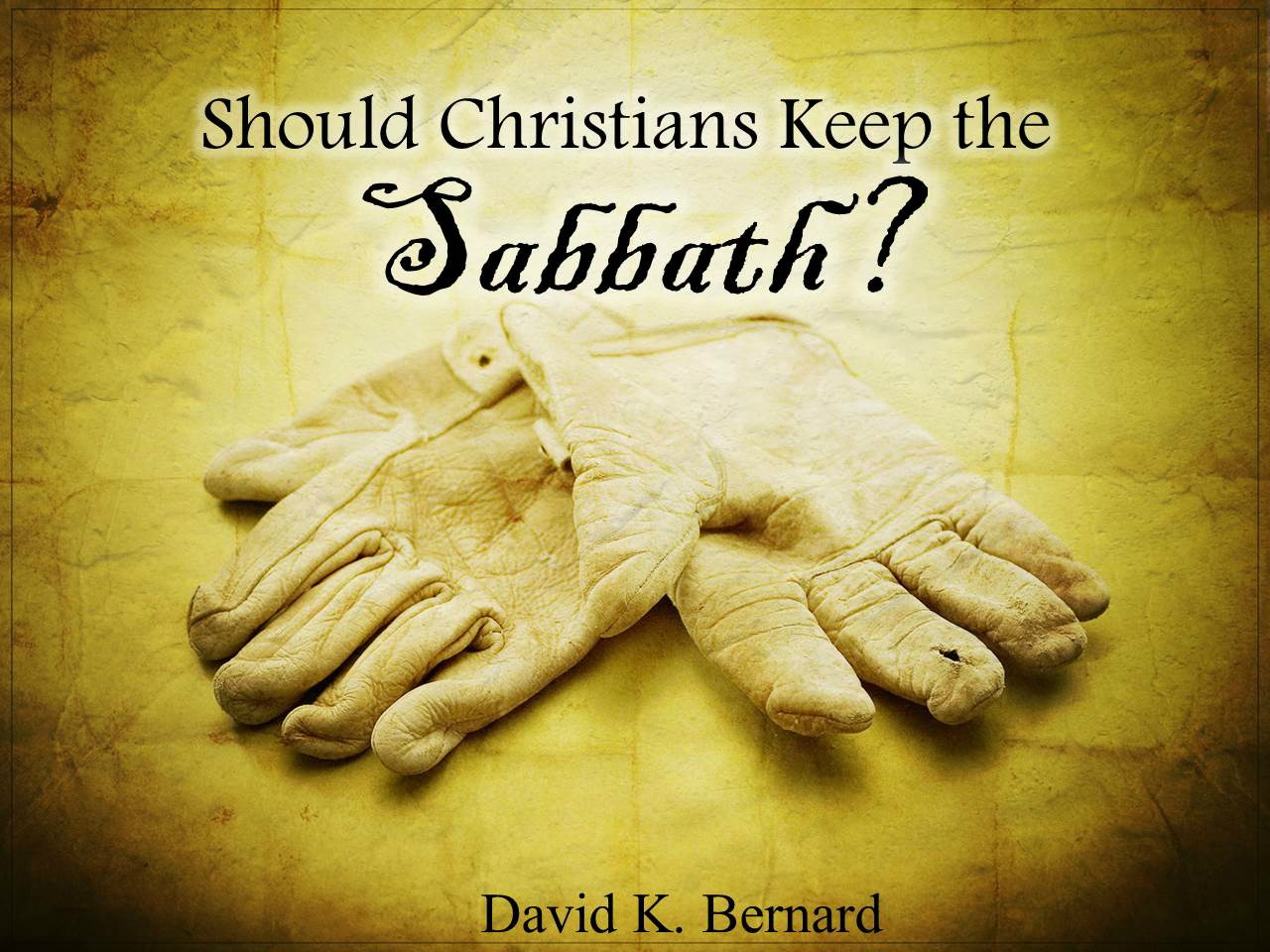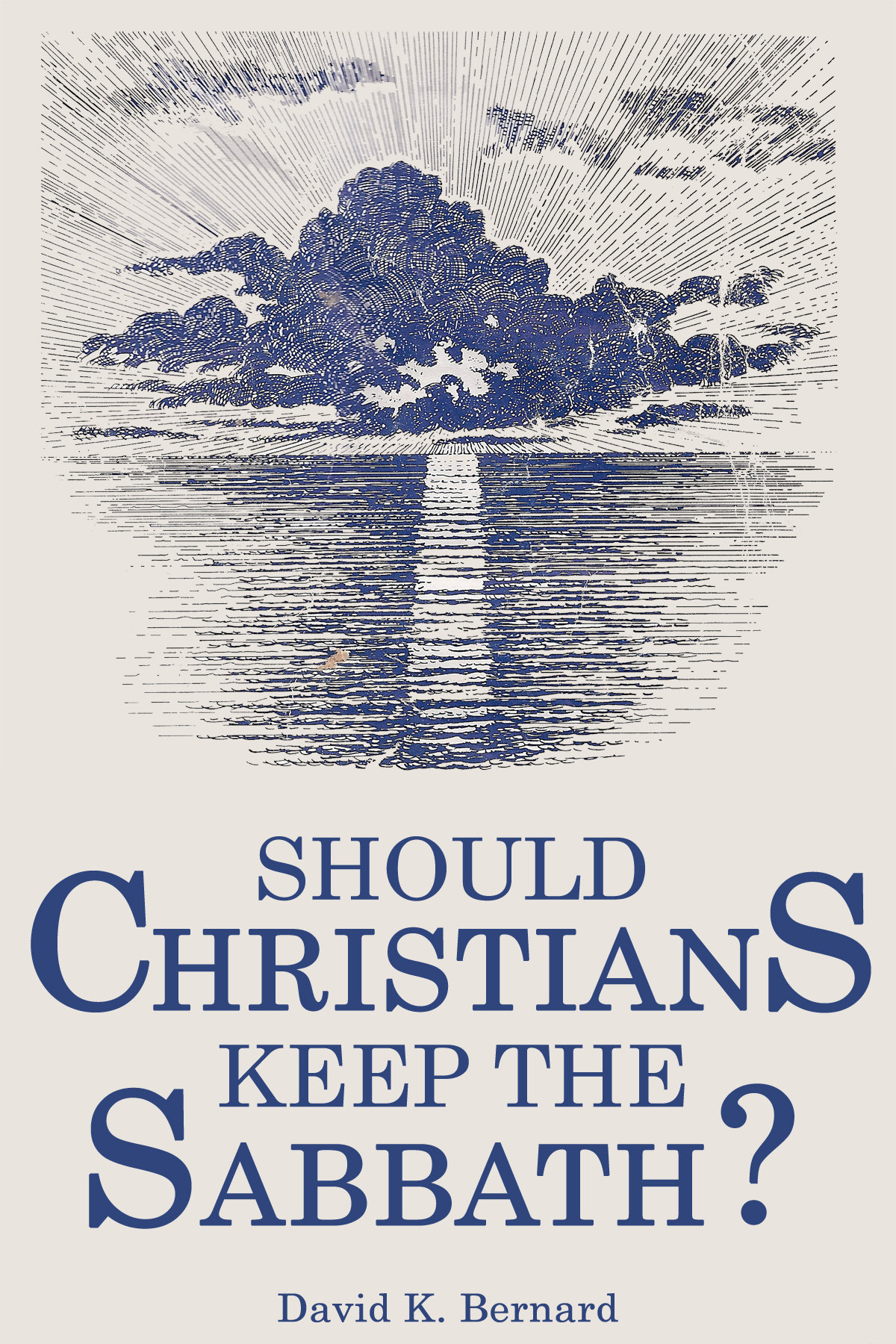The Jewish Sabbath was part of that ceremonial law; the Sabbath is not inherently moral. In Isaiah 1:10-20 God contrasted ceremonial observances—including blood sacrifices, feasts, and Sabbaths—with moral standards, saying He detested the Israelites’ keeping of the former because they did not live up to the latter.

By David Bernard
To View the Entire Article, Click Here
To Download the Entire Article Directly to Your Computer, Click Here
To View the Outline, Click Here
To View the PowerPoint, Click Here
Groups such as the Seventh-Day Adventists have raised many questions about the Sabbath in the minds of Christians. Should we still keep the seventh-day Sabbath of the Old Testament? Should we keep Sunday as the Sabbath? Has Sabbath keeping been abolished under the new covenant? What meaning does the Sabbath have for us today?
The Command and Its Significance
The command to keep the Sabbath was first given in the law of Moses and is part of the Ten Commandments (Exodus 20:8-11; Deuteronomy 5:12-15). The word sabbath comes from a Hebrew root that means “to rest, cease, desist, leave off” (Gesenius). On the pain of death, the Israelites were not to do any work on the Sabbath—not even cooking, lighting a fire, gathering firewood, or traveling (Exodus 16:23-30; 20:8-11; 31:12-17; 35:1-3; Numbers 15:32-36). While the Sabbath was a day of worship, sacred assembly, and special sacrifices in the Tabernacle and Temple (“an holy convocation”), for the average person it was primarily a day of rest at home (“a sabbath of rest . . . in all your dwellings”) (Leviticus 23:3). Historians agree that synagogues and local Sabbath worship at them did not come into existence until after the destruction of the Temple in 587 B.C.
Several passages of Scripture disclose that the Sabbath was given uniquely to the nation of Israel: “Verily my sabbaths ye shall keep: for it is a sign between me and you throughout your generations; that ye may know that I am the LORD that doth sanctify you” (Exodus 31:13). (See Ezekiel 20:12-13.) “And remember that thou wast a servant in the land of Egypt, and that the LORD thy God brought thee out thence through a mighty hand and by a stretched out arm: therefore the LORD thy God commanded thee to keep the sabbath day” (Deuteronomy 5:15).
These passages also reveal a twofold significance for the Sabbath law. First, as we have already seen, the Sabbath provided a weekly day of rest from all work. It was instituted for people’s physical, mental, and spiritual well-being, not because the day itself was sacred. As Jesus said, “The sabbath was made for man, and not man for the sabbath” (Mark 2:27). This provision of rest was especially significant to the Israelites, for the Sabbath was a constant, vivid reminder that God had delivered them from slavery and entered into covenant with them.
Second, the Sabbath served to sanctify the nation, of Israel, that is, to set it apart or separate it from all other nations, for no other nation observed the Sabbath. Along with laws concerning diet, farming practices, and clothing, the Sabbath law distinguished the Israelites from everyone else and identified them physically as Jehovah’s chosen people.
The Sabbath and the New Covenant
The church today is not under God’s covenant with Israel as epitomized by the Ten Commandments, but under the new covenant (Jeremiah 31:31-34; Romans 7:5-6; Galatians 3:23-35; 4:21-31). As a result, the church no longer observes the physical signs and ceremonies of the old covenant, such as circumcision (Galatians 6:15). God and His Word are unchanging, but some of His commands relate only to certain people or a certain time. While God’s moral law never changes, Christians are not subject to the ceremonial law of the Old Testament (Mark 7:14-19; Acts 11:5-9; 15:1-29).
To View the Entire Article, Click Here
To Download the Entire Article Directly to Your Computer, Click Here
To View the Outline, Click Here



